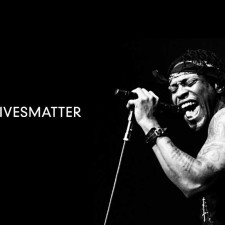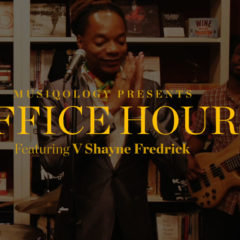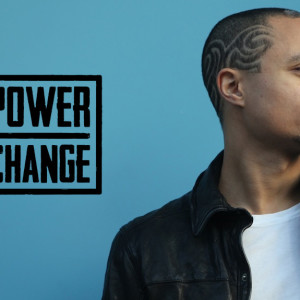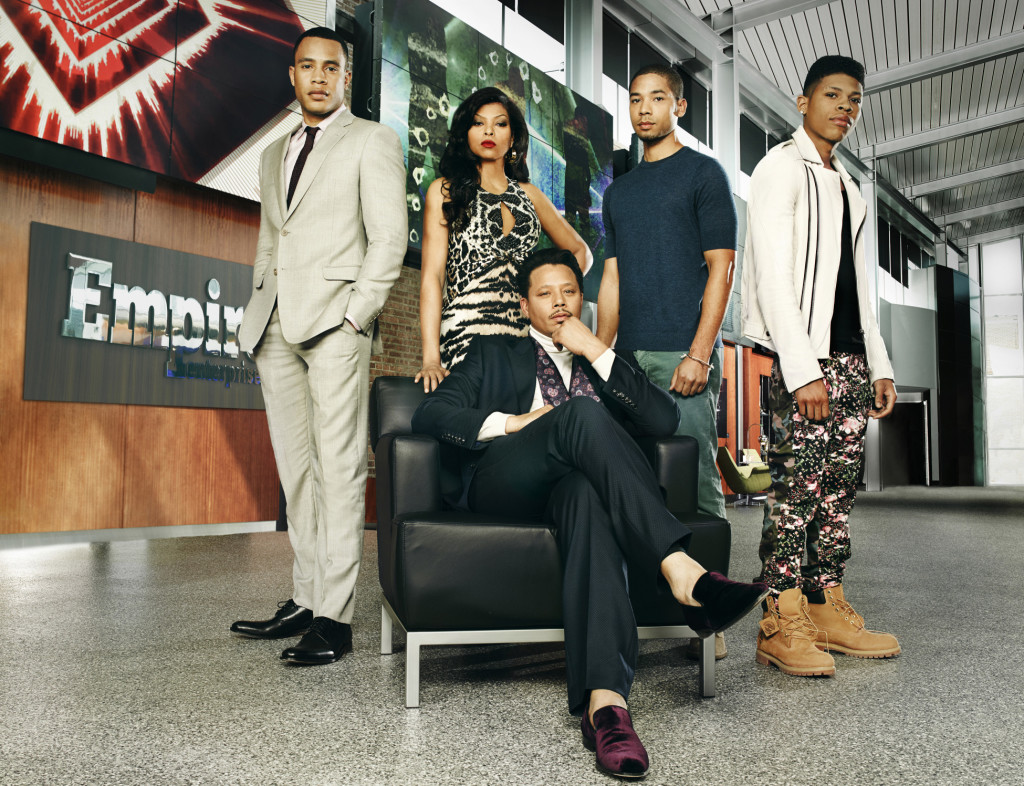 For Birgitta Johnson and Treva Lindsey, Critics-At-Large
For Birgitta Johnson and Treva Lindsey, Critics-At-Large
I don’t remember having many TV shows that I watched obsessively after I became an adult. TV was mostly for those times when I was broke, lonely, bored or any combination of these. There was Saturday Night Live (no money/no date); the afternoon Soaps I watched when I was a touring musician (out in the middle of nowhere); the post adolescent six-month stretch when I quit a band mid-tour and lived with Mom (yeah, that broke); watching Jasmine Guy A Different World and In Living Color in graduate school. Law and Order/Star Trek reruns are, I admit, my visual potato chips—familiar, predictable, sweet and salty. During my teen years I was in the streets, in rehearsal, on stage, in a club or church playing a gig. Who had time to commit to a show? It only took one episode each of Survivor and Real World for me to know that reality TV would never be my cup. Sorta missed the DVR/Netflix thing because there was nothing I /had to/ watch.
I never felt bad about any of this until I got on social media a few years back. The hilarity of reading people debating and critiquing “their” TV shows reminded me of how it felt to ride a school bus: just having fun for fun’s sake but still going somewhere. Yet people seemed very invested at the same time. I enjoyed the reactions of the smart and talented people I read online. Many also write about television shows as doing serious cultural work in the public sphere. Critics like Mark Anthony Neal have emphasized that they studied shows such as The Wire, for example, in real time, as they unfolded week to week and not in a marathon binge after the fact like one would read a classic novel. When Shonda/Kerry mania hit, I treated her like she was the finest lady at the party. I tried flirting with Scandal briefly, but honestly, I mostly laughed even as all those around me affirmed the show’s excellence.
Then I read about a new series called Empire, a family centered drama set in one of my hometowns, Philadelphia. All the action takes place around the family’s record label and the ups and downs of the contemporary music industry. For obvious reasons I was suckered in. My family of origin as well as the one I created possess a deep appreciation for and investment in music. And because I’m a musician that raised my three, now adult, children in a rich musical environment (I still collaborate with two of them), the show drew me in on its premise alone. A fictional black family that obsesses about music, is full of big mouths ideas, and voices loud strong, passionate opinions about each others’ lives? It just made sense to me in a fundamental way.
With that irresistible connection to the show’s premise, I watched Empire carefully. Could this be my show? Terrance Howard convincingly plays a music making, conk wearing, psycho, hyper-patriarchal, dangerously homophobic, murdering and opportunist “Family Man.” In an age when the very idea of Cliff Huxtable is unraveling in operatic proportions, Howard’s character can only stun as he simmers and then explodes in all his scenes. During the show’s premiere we witness him beat and throw his very young and apparently gay son in a garbage can in bone-chilling disgust; he shoots and kills one of his oldest friends without ceremony in cold blood; and he pits his sons against one another in order to determine who’ll take over the family business. This ice-cold dude will always be on top.
On top of everybody except his ex-wife/baby mama appropriately named, Peaches “Cookie.” She’s a newly emancipated ex-con with big hair, tight dresses, high heels and lots of, umm, “urban” attitude. Cookie invented ratchet in prison. We learn quickly that she’s the sharpest knife in the room and that there might be one tucked in her thigh-high boots. The pistol is under the silk pillowcase. She’s a quick-tongued beauty that takes bulls*#^ smelling to the level of being an empath. Taraji Henson plays this character to the hilt. Standing in the middle of the emotional bonfires produced by these characters are their three hugely talented sons, all with personalities as large as their parents’. No shrinking violets in this plot. These cats are ambitious—though differently so—and were raised in the belly of Empire; each believes it’s their legacy. And since this is TV, the oldest is bi-polar and Alpha, the middle son is gay and the family’s peacemaker, and the baby boy is a spoiled brat that thinks his gifts are supposed to get him what and whomever he wants. (He’s mostly right; keep this dude away from the backup singers).
And since this is TV, the oldest is a very prepared, polished, work-alcoholic businessman that for all intents and purposes married his mother–only she’s white and leads him around literally by his meds and his member. The middle son is closeted to the music world, writes and sings good pop songs that yearn to be as emotionally charged as any Donnie McClurken record, keeps a live-in boyfriend, and whose job description comprises being a human dartboard for his Pops’ homophobic rants and glares. And, of course, baby brother is a rapper complete with a rowdy entourage, lots of “womens,” booze, weed and a weird proclivity for swinging his wiener around on camera while publicly deriding President Barack Obama, a close family friend. The President hollered at his boy even phoned Papa Doom to check him for his son’s behavior. And since this is TV, Jr.’s antics are promptly uploaded to Twitter right before his big show, which makes for a public relations dream. Dude was trending! Pretty standard day for a rapper, I hear.
If you’ve ever been fortunate enough to share music making with your family, you’ll know why I’d be primed for a show like this. My dad taught me my first jazz on the piano. My sister and I were in the same church choirs for many years. I taught my kids music and formed a group with them. I’ve collaborated with my son in his beat making. And I’ve recorded and continue to perform with my youngest daughter. I admit that Empire’s plot lines—already piling up like a train wreck in its second week—are melodramatic, over-the-top, and made for TV consumption. (Sell those luxury cars before they touch the remote). Thus, one has to suspend reality to watch this show (isn’t that why we use TV, after all?) My kids, for example, would never let me get away with verbally abusing them like these characters do for more than a hot second. They’re not made like that. You think Cookie fights back? And I could never treat them that way. Even if I get real real salty because they were messing up something in a rehearsal and they had a long time to focus and work it up and it wasn’t that hard to begin with and if you would just listen to me and practice it slow everyday and how many times do I have to say that intonation is very important to any performance cellos don’t tune themselves now let’s do it again why are you breathing after that word the recital is next week you’re in the wrong key I love you. ♥ Oops. Where was I?
Right. A couple of things that I noticed in the show is how the musical performances are shot like music videos—larger than life as if the emotional trajectory of the songs depends on the production values of the visual representations. In other words, the songs are good enough, but the presentations are better. Music and spectacle are equated. Even a rehearsal turns into a fantastical Super Bowl half-time show. In a related way I wonder if these somewhat two-dimensional characters—riveting as they are—will be able to bear the weight of how complicated these plot lines seem to be getting. Will they tip toward absolute implausibility? Hard to tune into that every week, I’d think. But shows like this and even film shouldn’t have to bear the burden of a “documentary impulse,” something that is a standard complaint about shows with black storylines and characters. I’m thinking here of the controversy surrounding the film Selma’s “truthfulness” to the historical facts. All art is interpretive, after all, and the less didactic, the better in my opinion. Plus, if you’re not an insider to the record industry, the difference between fact, fiction and fantasy is not relevant. Relevance won’t attract sponsors, unfortunately.
My favorite scenes always seemed to involve the middle and youngest sons. When they perform together in the plot, I always feel victorious for some reason. Just like they were my own offspring. If family members make and appreciate music together it can be a most powerful love language. Those two dudes ain’t right unless they’re collaborating on something—like they were born to do just that. But since it’s a TV show, the older Mr. Business brother is jealous of his younger siblings’ deep connection despite they’re different sexualities. Now every music family knows that if this were real life, everybody would get a part—you gonna clap, try to sing backup, dance or something. It’s not /that/ deep when you used to share a bathtub and popsicles.
Now if they could just give me a few more chords in those songs; find cures for Pops’ homophobia and his other health issues; a better assistant for Cookie (no, keep her she’s that ghettofabulous piece of work I’d be talking to on the train to work); a nicer wife and a church with a good choir for no. 1; a hit record for no. 2; some rehab for no. 3; I might make this my show. For the life of me I don’t know why the parents don’t see the obvious: that their gay son has the right balance of artistic talent and business acumen to run this damn company. If they give that company to no. 3, Empire will be a Strip Club and opium emporium in three weeks.
But I ain’t that much into TV so I might not be watching Empire every week unless I’m bored or something. The DVR is set, just in case.
Guthrie Ramsey, Editor
Tags: Empire, Review, Television, Teraji Henson, Terrance Howard

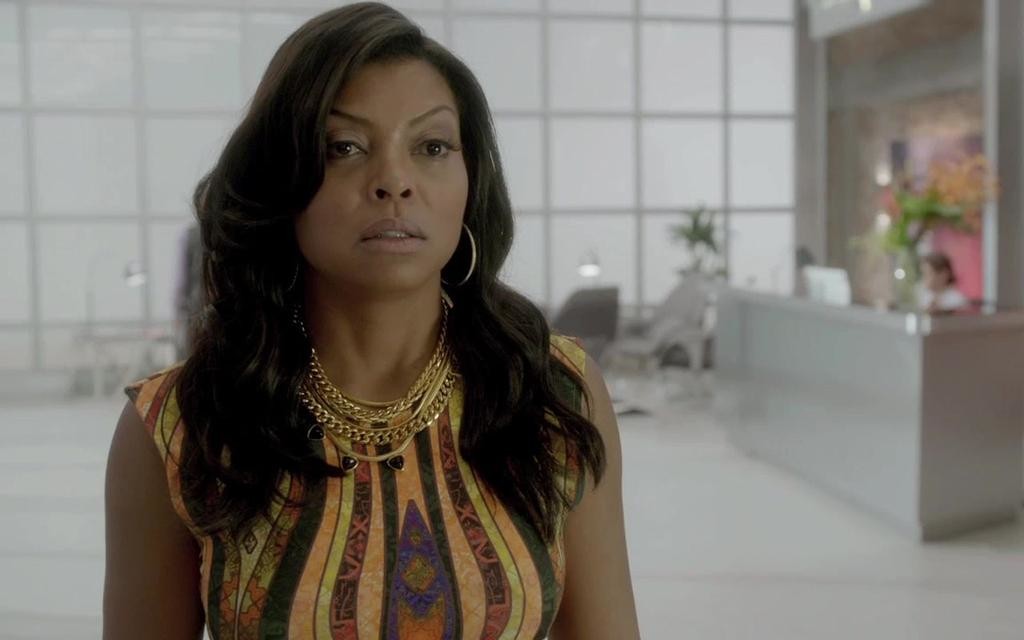
 Share On Facebook
Share On Facebook Tweet It
Tweet It


